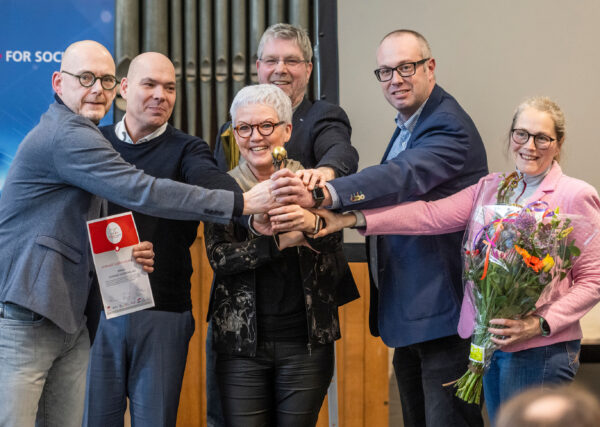Greening Corridors

Duurzame logistieke verbindingen tussen havens en achterland.
Logistiek is de stille kracht achter maatschappelijke transities.
Bij het CoE KennisDC Logistiek maken we die kracht zichtbaar en toepasbaar.
Soms begint verandering niet met een groot idee, maar met een simpele vraag: hoe kan het anders? Een stad die ademt, ook als ze groeit. Zorg die beweegt met de mens, niet met het systeem. Goederen, data, mensen die niet botsen, maar verbinden. Logistiek is geen bijzaak. Het is de sleutel tot echte verandering.
Wat beweegt ons? Wat doen we?Van vitale steden tot betaalbare zorg en duurzame corridors. Met drie thema’s richten we ons op vraagstukken waarin logistiek cruciaal is voor duurzame verandering.

Duurzame logistieke verbindingen tussen havens en achterland.

Naar stadslogistiek die ruimte maakt voor mens en stad

Voor zorglogistieke concepten die bijdragen aan de transformatie naar passende, betaalbare zorg.

Verandering begint met kennis die blijft stromen. Al 15 jaar maken we zichtbaar hoe logistiek bijdraagt aan een betere samenleving. Logistiek+ deelt de ideeën, inzichten en uitkomsten.
Naar Logistiek+Wij geloven dat logistiek meer is dan een keten alleen.
We zien logistiek als fundament voor welzijn, duurzaamheid en maatschappelijke vernieuwing
Als landelijk netwerk van lectoraten, hogescholen en praktijkpartners werken we al 15 jaar samen aan slimme oplossingen voor complexe vraagstukken. Van duurzame stadslogistiek tot datagedreven zorg.
We brengen onderwijs, onderzoek en praktijk bij elkaar in learning communities en living labs. Voor iedereen die voorbij sectorgrenzen durft te denken en wil bouwen aan de logistiek van morgen.
Meer over ons